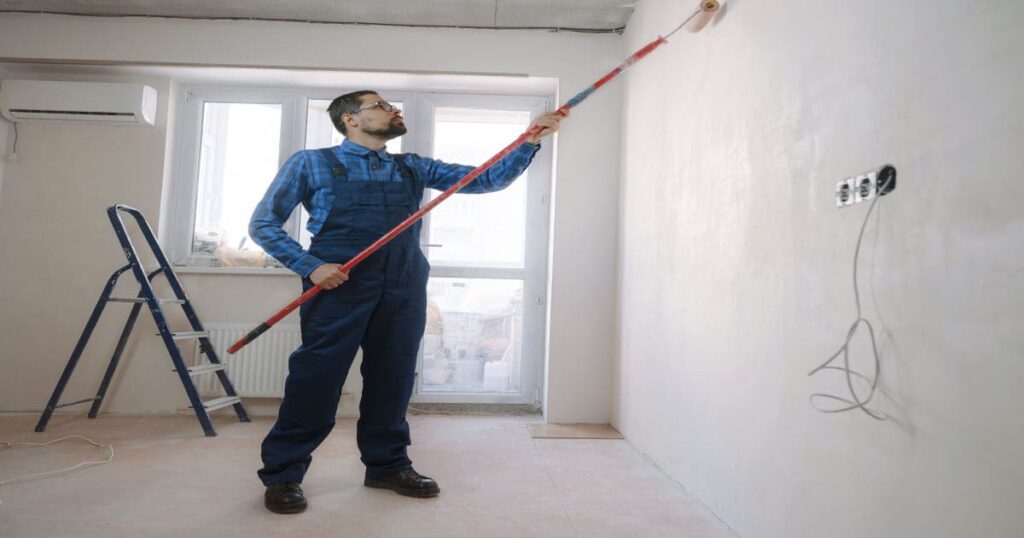A successful home renovation project is not merely about enhancing the aesthetics and functionality of a residence; it represents a significant investment that can greatly impact the quality of one’s living space.
Embarking on a home renovation project is a significant endeavor, and its success hinges not only on the skills of contractors and designers but also on the active involvement of the homeowner. Being the best home renovation client is more than just signing contracts and making payments; it involves a proactive approach, effective communication, and a clear understanding of your goals and expectations.
By looking into the intricacies of being the best home renovation client, we aim to empower you with the knowledge necessary to turn your renovation dreams into reality while fostering a positive working relationship with the professionals involved.
Understanding Your Role as a Home Renovation Client
Setting Clear Goals and Expectations
Define Your Renovation Objectives and Priorities
When embarking on a home renovation project, it’s essential to begin by clearly defining your renovation objectives and priorities. Consider what specific improvements or changes you want to make to your home, whether a kitchen upgrade, a bathroom remodel, or a full-scale renovation. Take the time to identify the essential and more flexible aspects, allowing you to have a well-defined vision for your project.
Determine a Realistic Budget for Your Project
The financial aspect of a home renovation is a critical consideration. To be an effective renovation client, determine a realistic budget for your project. Carefully evaluate your financial capacity, considering the construction costs and setting aside contingency funds for unexpected expenses and design choices. A well-planned budget provides a clear financial framework and helps prevent overspending, ensuring that your renovation remains within your means.
Outline Your Desired Timeline for Completion
Renovation projects often come with timelines that can affect your daily life. It’s essential to outline your desired timeline for completion, considering factors like family events, holidays, or special occasions that might impact the renovation schedule. A well-defined schedule will help you and your contractors stay organized and ensure the project progresses smoothly, aligning with your lifestyle and scheduling needs.
Research and Planning
Research Potential Contractors and Home Renovation Professionals
To be the best home renovation client, thorough research is vital. Start by researching potential contractors and home renovation professionals in your area. Look for reputable companies or individuals with a proven track record of successful projects. Check their credentials, licenses, and customer reviews to gauge their reliability and expertise. It’s essential to gather a list of candidates to interview and select the one that aligns best with your project goals.
Consider the Scope of Your Project
A critical aspect of being a successful renovation client is defining the scope of your project. Determine whether your renovation will focus on specific areas of your home, such as the kitchen and bathroom, or if it encompasses the entire house. Understanding the project’s scope helps you communicate your goals effectively with contractors and ensures you have a clear vision of what you want to achieve.
Create a Detailed Project Plan or Vision Board
One of the keys to a successful home renovation is having a clear and detailed project plan. Consider creating a project plan or a vision board that outlines your design preferences, color schemes, and any specific features you want to include. Visual aids can help convey your ideas to contractors and designers more effectively. Include details such as floor plans, materials, and inspirational images to view your renovation vision comprehensively.

Choosing the Right Contractor
Evaluating Potential Contractors
Check Credentials and Licenses
When striving to be the best home renovation client, one primary step is rigorously checking potential contractors’ credentials and licenses. Ensure that the contractors you consider are licensed and accredited to perform your project’s work. Licensing serves as an assurance of professionalism, competence, and adherence to industry standards. Confirming this foundational information is an essential part of due diligence to protect your investment.
Review Portfolios and Past Project References
To further assess potential contractors, delve into their portfolios and seek past project references. A reputable contractor should readily provide examples of their previous work. Examine these portfolios to evaluate their projects’ quality, style, and scope. Additionally, reach out to past clients for references and feedback. This firsthand information can provide valuable insights into the contractor’s work ethic, reliability, and ability to meet client expectations.
Request Multiple Quotes and Proposals
As a diligent renovation client, requesting multiple quotes and proposals from the contractors you are considering is prudent. This step lets you compare pricing, project timelines, and proposed approaches. By obtaining multiple quotes, you better understand the market rate for your renovation project, helping you make an informed decision. Be sure to review the details of each proposal carefully, including materials, labor costs, and any potential contingencies.
Interviewing Contractors
Ask About Their Experience and Expertise
During the interview process with potential contractors, it’s essential to inquire about their experience and expertise. Discuss their background in the field, including their years in the industry and specific areas of expertise. Understanding their experience helps gauge their competence in handling your renovation project. Additionally, ask about any certifications or specialized training they possess that may be relevant to your project’s requirements.
Inquire About Their Approach to Communication and Problem-Solving
Effective communication is a cornerstone of successful home renovation projects. In your interviews with contractors, delve into their approach to communication and problem-solving. Ask how they typically inform clients about project progress, challenges encountered, and potential solutions. Understanding their communication style and responsiveness is crucial for maintaining a transparent and collaborative working relationship. Inquire about how they handle unexpected issues and conflicts during the renovation process.
Discuss the Contract Terms and Payment Schedule
Discuss the contract terms and payment schedule in detail during the interview process. Review the proposed contract thoroughly, ensuring it includes all essential project details, such as scope of work, materials, timelines, and warranties. Clarify any ambiguities or uncertainties in the contract before signing. Additionally, discuss the payment schedule and the method of payment. To avoid misunderstandings, it’s advisable to clearly understand when payments are due and what milestones trigger them.
Effective Communication
Establishing Open Lines of Communication
Maintain Regular Contact with Your Contractor
Effective communication is the linchpin of a successful home renovation project, and maintaining regular contact with your contractor is paramount. Ensure that you establish a consistent line of communication to stay informed about the project’s progress and any potential issues that may arise. Regular updates enable you to address concerns promptly, make timely decisions, and maintain a collaborative partnership with the contractor. Whether through scheduled meetings, phone calls, or digital communication tools, staying in touch fosters transparency and keeps everyone on the same page.
Discuss Preferred Methods of Communication (Email, Phone, In-Person)
To streamline communication and ensure that it aligns with your preferences, it’s essential to discuss and establish preferred methods of communication with your contractor. Some clients prefer email updates for documentation, while others prefer phone calls for quick discussions. In-person meetings can also be valuable for detailed walkthroughs and decision-making. Clarifying these preferences early on helps prevent misunderstandings and ensures that communication flows smoothly throughout the project. Flexibility in communication methods allows for a tailored approach that suits both your needs and the contractor’s.
Addressing Concerns and Changes
Express Concerns Promptly and Constructively
In the dynamic landscape of home renovation, concerns may inevitably arise. The key to addressing these concerns effectively is to express them promptly and constructively. If you encounter issues related to the project’s progress, quality of work, or any other aspect, don’t hesitate to communicate your concerns to your contractor. Be specific and clear in your feedback, focusing on the problem and potential solutions rather than assigning blame. Constructive communication fosters a problem-solving approach and allows for timely resolution.
Be Flexible and Open to Changes If Necessary
Home renovation projects can occasionally take unexpected turns, requiring flexibility and openness to changes. As a proactive renovation client, it’s important to understand that adjustments to the original plan may be necessary due to unforeseen circumstances or new design ideas. Being receptive to change and willing to adapt the project scope, timeline, or design choices when needed can lead to more successful outcomes. Collaborate with your contractor to explore alternative solutions and make decisions that align with goals.

Budget Management
Staying Within Budget
Monitor Project Expenses Regularly
Effective budget management is a cornerstone of being a successful home renovation client. To ensure you stay within your budget, monitoring project expenses is imperative. Keep a close eye on all financial aspects of the renovation, including costs for materials, labor, permits, and any unforeseen expenses. Maintain organized records of expenditures and compare them to your initial budget. Regular monitoring allows you to identify potential deviations from the budget early on, enabling timely corrective actions.
Prioritize Needs Over Wants to Avoid Budget Overruns
During a renovation project, it’s natural to come across tempting design choices and upgrades that may exceed your budget. To prevent budget overruns, prioritize your needs over wants. Focus on essential elements of the renovation that align with your initial goals and objectives. While including all desired features is tempting, a disciplined approach ensures you stay within your financial limits. You can make decisions that safeguard the budget by distinguishing between essential and non-essential expenditures.
Handling Unexpected Costs
Plan for Contingencies and Unexpected Issues
When striving to be a successful home renovation client, it’s crucial to anticipate and plan for contingencies that may arise during the project. Renovation projects often entail hidden challenges, such as structural issues, hidden damages, or unforeseen complications. To mitigate the impact of these unexpected costs, incorporate a contingency fund into your budget. This fund is a cushion to address unforeseen expenses, ensuring the project can continue without major disruptions. Being prepared for the unexpected demonstrates prudent financial management.
Discuss Potential Cost Increases with the Contractor
Effective communication with your contractor is essential when addressing potential cost increases. If circumstances could lead to additional expenses beyond the initially agreed-upon budget, engage in open and proactive discussions with your contractor. Seek clarification on the reasons for the cost increase and explore potential solutions to manage the situation within your financial constraints. A transparent dialogue with your contractor allows for informed decision-making and helps maintain a cooperative and problem-solving approach.
Timely Decision-Making
Making Timely Decisions
Approve Design Choices and Materials Promptly
Timely decision-making is a critical component of being an effective home renovation client. It’s essential to promptly approve design choices and materials to keep the project on track. Once your contractor presents design options or material selections, review them diligently and provide feedback or approvals promptly. Decision delays can disrupt the project schedule, increase costs, and create frustration for you and the contractors. You ensure the renovation progresses smoothly by expeditiously confirming design elements and materials.
Avoid Delays Caused by Indecision
Indecision can be a significant source of delays in a renovation project. As a proactive renovation client, make a concerted effort to avoid such delays. Trust in your initial planning and vision for the project, and when faced with choices, consider the implications of each option carefully. Seek advice from your contractor or designer if needed, but make decisions promptly to prevent bottlenecks in the construction process. Recognize that decisive action prevents project setbacks and contributes to a more efficient and cost-effective renovation.
Adhering to the Agreed Timeline
Understand the Importance of Sticking to the Project Schedule
Recognizing the significance of adhering to the project schedule is paramount for a successful home renovation client. A well-planned timeline serves as the project’s roadmap, guiding each phase and ensuring that work proceeds smoothly. Understand that deviations from the schedule can lead to delays, increased costs, and potential disruptions to your daily life. By valuing and respecting the project timeline, you contribute to project efficiency and achieving your renovation goals within the desired timeframe.
Cooperate with the Contractor’s Timeline Requirements
Cooperation and collaboration with your contractor regarding the project timeline are essential. The contractor’s expertise and experience enable them to establish realistic timelines. As a proactive client, it’s crucial to cooperate with the contractor’s timeline requirements. This includes accommodating their scheduling needs, ensuring access to the renovation site when necessary, and responding promptly to queries or decisions that may impact the schedule. A harmonious partnership with your contractor, rooted in adherence to the agreed-upon timeline, facilitates a smoother and more successful renovation process.

Quality Assurance
Inspecting Work Progress
Regularly Visit the Renovation Site to Check the Progress
As a vigilant home renovation client, it’s essential to regularly visit the renovation site to assess the progress of the work. Site visits allow you to understand firsthand how the project unfolds and whether it aligns with your vision and expectations. By being physically present, you can spot any potential issues or deviations from the plan early on. Maintain open communication with your contractor to schedule these visits at convenient times, ensuring you stay informed about the project’s evolution.
Address Any Concerns About Work Quality Promptly
When inspecting work progress, it’s equally important to promptly address any concerns about work quality. If you notice any aspects of the renovation that do not meet your expectations or standards, communicate these concerns to your contractor without delay. Constructive feedback enables them to take corrective actions swiftly. Timely intervention can prevent minor issues from becoming major problems, ensuring that the project stays on track and that the final results meet your desired level of quality.
Final Inspection and Walkthrough
Conduct a Thorough Inspection Before Project Completion
Before finalizing your home renovation project, conducting a thorough inspection and walkthrough is imperative. This is the last opportunity to ensure that all aspects of the project align with your expectations and standards. Carefully scrutinize every detail, from the quality of workmanship to the adherence to design specifications. Identify any remaining issues, discrepancies, or areas that require attention. Document your findings comprehensively to provide clear feedback to your contractor.
Ensure That All Work Meets Your Expectations and Standards
As the best home renovation client, your commitment to quality is exemplified during the final inspection and walkthrough. It is your responsibility to ensure that all work, no matter how minor, meets your exacting standards and aligns with your vision for the project. Engage in open and respectful communication with your contractor to address any outstanding concerns or discrepancies. The goal is to achieve a renovation outcome that not only meets but exceeds your expectations, leaving you with a space that you can fully appreciate and enjoy.
Payment and Finalization
Final Payments
Make the Final Payment as Per the Contract Terms
As your home renovation project nears completion, it’s essential to fulfill your financial obligations by making the final payment as specified in the contract terms. Adhering to the agreed-upon payment schedule demonstrates your reliability and commitment as a responsible client. Ensure that the final payment is made promptly upon completion of the project. This final financial transaction marks the culmination of your financial responsibilities in the renovation process.
Obtain All Necessary Documentation and Warranties
Beyond making the final payment, obtaining all necessary documentation and warranties associated with your renovation project is crucial. Your contractor should provide a comprehensive documentation package, including invoices, receipts, and any warranties for materials or artistry. These documents serve as essential references for future maintenance and potential warranty claims. Keep these records organized, ensuring you have all the necessary documentation to protect your investment.
Expressing Gratitude
Show Appreciation for a Job Well Done
Expressing gratitude and appreciation for a job well done is a gracious way to conclude your role as a home renovation client. Take the time to acknowledge the efforts and hard work of the contractors, designers, and professionals who contributed to your project’s success. A simple thank-you can go a long way in fostering positive relationships and leaving a lasting impression. Recognizing and appreciating the skills and dedication of the renovation team reflects your professionalism as a client.
Leave a Positive Review or Testimonial if Satisfied
An excellent way to show your satisfaction as a home renovation client is to leave a positive review or testimonial for the contractors or professionals involved in your project. Share your experience, highlighting their work’s strengths, professionalism, and outstanding aspects. Positive reviews serve as a valuable form of feedback and help others decide when choosing renovation professionals. Your testimonial can significantly contribute to the reputation and success of the contractors you worked with.
A Blueprint for Home Renovation Success
In the journey to become the best home renovation client, we’ve unraveled the intricate tapestry of effective client practices. From setting clear goals and collaborating with skilled professionals to vigilant budget management, timely decision-making, and quality assurance, your role as a proactive client shapes the destiny of your renovation project. By following these guidelines and fostering open communication, you embark on a path toward a seamless and satisfying renovation experience. As you conclude your renovation, express gratitude and leave a positive legacy. Remember that your journey as a home renovation client is a testament to your dedication to creating a space that embodies your vision and aspirations, leaving a lasting mark on home improvement.

Frequently Asked Questions
What Should I Do if I Encounter Unforeseen Structural Issues During My Home Renovation?
If you encounter unexpected structural issues during your renovation, it’s crucial to consult with a structural engineer or a qualified professional. They can assess the problem, provide expert advice, and recommend necessary repairs or modifications to ensure the safety and integrity of your home. Addressing structural issues promptly is essential to avoid further complications.
How Can I Find Eco-friendly and Sustainable Materials for my Renovation?
To source eco-friendly and sustainable materials for your renovation, consider visiting local suppliers and showrooms specializing in environmentally friendly options. Look for certifications like FSC (Forest Stewardship Council) for wood products and Energy Star appliance ratings. Additionally, explore recycled and upcycled materials and sustainable building practices, such as using reclaimed wood or installing energy-efficient insulation.
What Steps Should I Take to Prepare my Home for a Major Renovation?
Preparing your home for a major renovation involves several steps. First, clear out the affected areas to create a safe and accessible workspace for contractors. Protect valuable or fragile items by moving them to a secure location. Ensure that utilities like water, gas, and electricity are safely disconnected if needed. Lastly, communicate with your contractor to discuss specific preparations for your renovation project.
How Can I Stick to My Budget?
To keep your renovation within budget, meticulous planning is essential. Define a realistic budget and include a contingency fund for unexpected expenses. Prioritize essential needs over wants and carefully review quotes and proposals from contractors. Regularly monitor project expenses and promptly address any cost increases. Effective communication with your contractor and disciplined financial management is key to staying on budget.



























